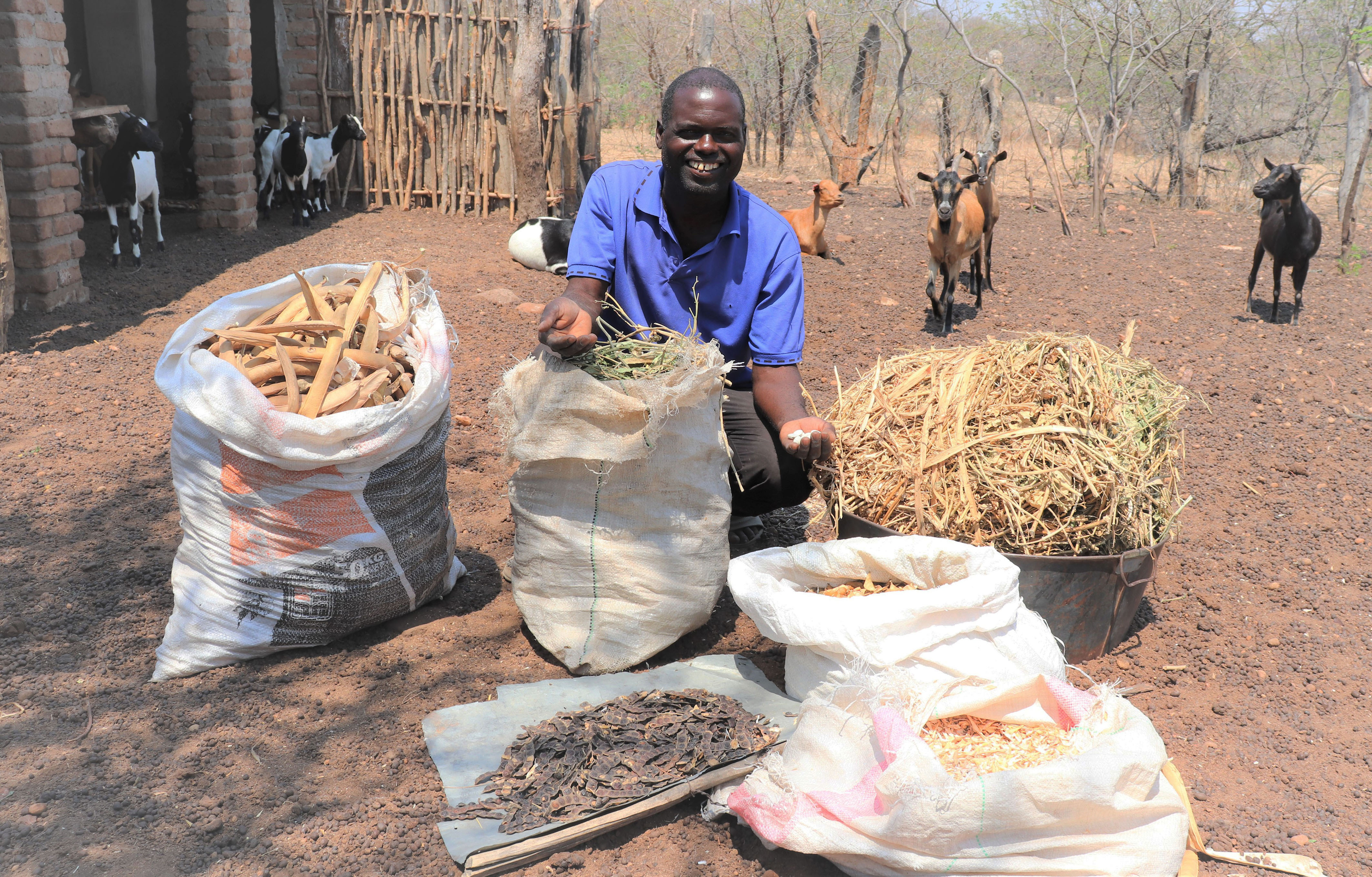
Anthony Mutenda seen here posing with some of the crops he uses as supplementary feed for his goats.
Located just over 220 kilometres north east of Harare, Mudzi is one of the hottest and driest districts in Zimbabwe, incessant droughts have ravaged the district resulting in food insecurity for humans and livestock alike. Most sources of water have disappeared and grazing land for livestock is depleted. Many in the district have resorted to rearing goats as a coping strategy and cushion against the adverse impacts of the droughts.
One such farmer is Anthony Mutenda from Ward 17, Mukota D who boasts of a 64-doe unit from a total of 96 goats. In response to the shortage of good pastures, Mutenda resorted to planting fodder to supplement feed for his bulging herd of goats.
“I procured some seeds that I planted as fodder to supplement my goat herd, these include velvet beans, lab-lab, cow peas as well as baobab fruit which I roast and mix with other locally available feed materials,” said Mutenda.
This good agricultural practise has ensured that Mutenda is able to continue his goat business given the increasing price of feeds obtaining in the market. The proceeds Mutenda is making, are enabling him to reinvest in his goat business while meeting his financial commitments such as children’s tuition fees. Mutenda was selected to be one of the 1000 anchor farmers in the 12 districts where the goat value chain component of the Value Chain Alliance for Livestock Upgrading and Empowerment (VALUE) project is being implemented.
The project is investing in centres of excellence – goat improvement centres where fodder plots will be planted and irrigated by solar powered boreholes to make supplements easily accessible to goat farmers in each district.
In addition, in collaboration with Grasslands and Matopos Research Institutes the project will undertake a research on alternative affordable fodder crops.
Watch video of Mutenda here: https://www.youtube.com/watch?v=203C1jyAPzA
